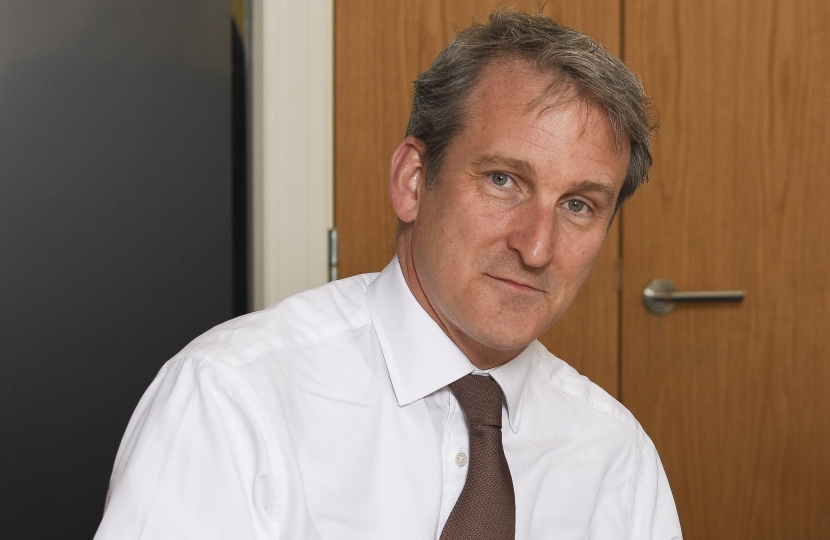
This article was written by Damian Hinds and published in the Herald group of newspapers on the 24th September:
"A growing number of constituents have written to me in recent days, concerned about the possibility of a second lockdown. Our country endured great privations in lockdown. Many livelihoods were hit, jobs lost; some businesses will not recover. I believe everybody wants to avoid the necessity of another general lockdown.
Putting such restrictions on in March was an incredibly heavy decision for a government to have to take. They knew what the effects of it could be. But they also knew what the – worse – effects of not doing it could be. It wasn’t a case of trading health considerations for economic ones: accelerating infection, or a rapid second spike, would be highly detrimental to both. Decisive action was needed, and the British public responded with immense spirit and resolve.
Once again there is clear evidence. We have seen the number of infections rise steadily since the start of September, with the latest ONS survey estimating as many as 70,000 people in the UK have the infection, and around 6,000 new cases each day. This means that the doubling rate for new cases could be between seven and 20 days.
Although infection rates across Hampshire since June have been low and below the national average, the picture is now showing an increase in cases, with neighbouring Surrey now listed as an area of concern.
And we heard from the Prime Minister on the action being taken by government to tackle the growth in the R rate – for people to work from home if possible, all hospitality outlets to close at 10pm with table service only, face coverings to be mandatory for staff in retail and hospitality outlets, plus for all users of taxi services. The ‘rule of 6’ will be extended to include indoor team sports, and the number of guests allowed at weddings will be reduced from 30 to 15.
Some might argue that the relatively low death rate means that restrictions are an overreaction. It is true that the majority of new cases has been amongst the young, but there are signs that older people, who are most at risk of developing a serious illness, are also catching the virus. And although the NHS is better equipped to manage those who need hospitalisation, this puts increasing pressure on the system just as those waiting for procedures hope to be seen and as we head towards winter.
With around 8% of the population thought to have had Covid-29, it means that the vast majority of people are still susceptible to catching it and, more importantly, spreading it to others who may be more vulnerable than themselves.
We are approaching winter, with all the usual threats of developing respiratory conditions. We don’t yet know how seasonal flu will affect us this year, but in combination with a disease that is more virulent than flu, we’re likely to face an extended period of uncertainty; possibly right through to the Spring.
But it is also important to remember that the NHS and our clinicians are much better prepared for an increase in cases. Treatment is better, with new drugs such as dexamethasone, which can reduce the mortality rate, but won’t eliminate it. More protocols are in place in hospitals to admit Covid-19 patients separately from others having elective or emergency procedures, and this will be vital to ensure the NHS remains open for all patients.
And there is also the new Adult Social Care Winter Plan in place to help support those who look after the most vulnerable members of our communities. This includes additional resources through the Infection Control Fund, and increasing PPE distribution to make supplies easily available for all adult social care providers and care workers.
There are no easy decisions at moments like this, but we do know how important the basics are - to reduce our own risk by following social distancing and hygiene rules, and to isolate the virus when individuals are identified as being at risk of having caught it. By everyone continuing to work together on this – as people locally have so well throughout – we can reduce the risk of a return of broader restrictions.
Some correspondence I’ve been getting puts the case for people to be free in deciding what action they take in response to the virus; to determine the degree of risk they themselves are prepared to take in catching it. I understand that line of argument, but there is a problem with it. With any communicable disease the question is not just whether you get it, but whether you transmit it. We do all rely on each other. I intensely dislike any curbing of liberties, but there does continue to be a need for a collective response to this national and global threat."


